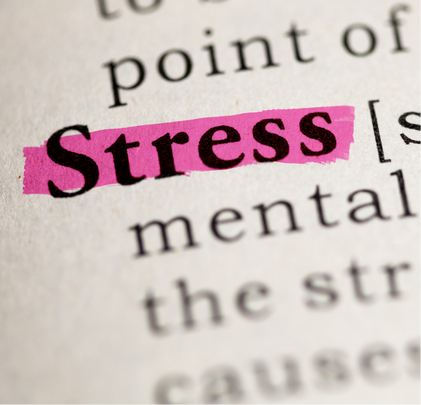|
5/16/2021 0 Comments Is Your Dog Stressed?Do you worry about your dog? Do they seem uptight or anxious? Are you concerned they are stressed? Stress affects our bodies physically, mentally and emotionally. Some stress can be good for us. It can help us grow and develop new skills. When it is positive stress, it is called eustress. However, the negative kind can cause us distress. It is the same for our dogs. Living in our modern world can be stressful for our dogs and challenge their bodies. Our dogs are exposed to processed food, artificial chemical, environmental contaminants, anti-microbials, sleep disruptions, noise, light disturbance, tobacco, psychological distress, being left alone for periods of time, the list continues.
Our dogs are individuals so each one has a different experience of health and well-being. They do all have a fundamental need to survive and their need to feel safe is all important to them. Emotions drive our dogs to behave in ways that keep them safe and away from danger. Our dog’s emotions are continually changing as they react to their environment. It is important to recognise that stress is an individual reaction, no two dogs will react the same way to a stressor. Stress is a biological response to something that makes our dogs feel threatened. When a dog reacts to stress, their brain activates the sympathetic nervous system that controls the ‘flight or fight response’, this causes the hypothalamus to release neurotransmitters that create a negative feedback loop and the immune system activates to prepare for possible infection. When our dogs feel out of control, fearful or overwhelmed their bodies produce a chemical cocktail of adrenaline and cortisol. It can take up to 6 days for a dog’s physiology to return to normal homeostasis depending on the dog’s emotional reaction. Short periods of stress are unlikely to affect the dogs health and well-being however when stress becomes long term stress it can be seriously detrimental to health. Can you recognise the signs of stress in dogs?
A dog will communicate that it is stressed by increasing distance from the ‘threat’. They will do this by barking, growling and lunging, stiffening up, staring; growling, snapping; and finally biting. Or they will try to make themselves smaller and less of a target to the threat - yawning, blinking, nose licking; turning their heads away; turning their bodies away, sitting, pawing; walking away; creeping, ears back; standing crouched, tail tucked under; lying down, legs up. WellnessWellness is a balance of physical, physiological, psychological and spiritual health. It is important to have restful sleep, have a good diet, and experience peaceful environments. Our dogs need to be able to connect to nature and have opportunities to go outside and get dirty. This creates a healthy immune system. Relaxation is key to reducing tension and it aids the natural flow of energy and removes blockages in subtle energy fields. It is vital that our dogs get to rest and relax in their daily routines. When our dog does not get enough sleep and recuperation time they will experience low health on all levels – physically, emotionally, mentally and spiritually. What Can We Do to Help Our Dogs?
Healthy dogs have ‘wellness’ at a vibrational, emotional, mental, physiological, physical and nutritional level. When we remove stressors from our dogs we reduce the impact on their sympathetic nervous system. Teaching them to relax is key to their well-being and yours! Need Help?Is your dog stressed? Do you need help teaching them to relax – if so I can help?
I offer individual tailored 1-2-1 Canine Coaching Sessions. Each session is 1-2 hours long and includes a follow up email report and telephone support. Sessions start at £45, packages are available for multiple sessions.
0 Comments
Leave a Reply. |
Search by typing & pressing enter



